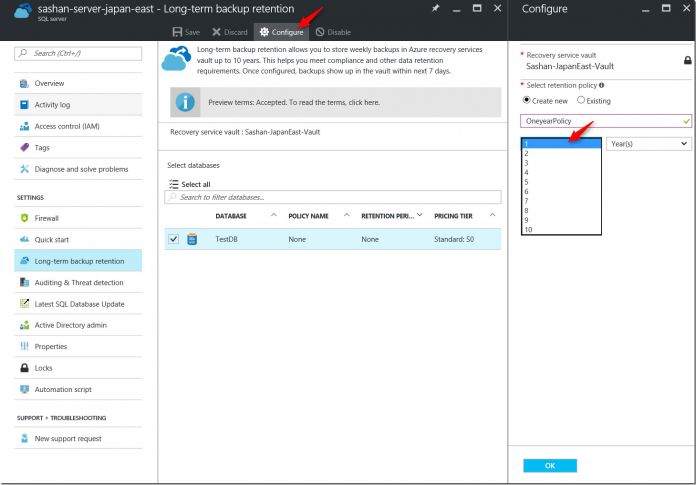Azure SQL Database now support up to 10 years of Backup Retention, says Microsoft. The announcement was made on the company's official Azure blog. Principal Program Manager of Azure SQL Database, Alexander Noscov, said the change makes it easier for customers.
This ease of use means customers can enable long-term retention in a few clicks. With this new feature you can extend the retention period from 35 days to as much as 10 year. That's quite a difference for sure. Azure SQL Database now also supports backups that are stored within the Azure Backup Service Vault.
To support data retention requirements, Azure SQL Database now backs up more often. Indeed, Microsoft says the service will create a full backup every week for each database.
In the blog post, Noscov explains how the backups work:
“Once you add the LTR policy to a database using Azure Portal or API, these weekly backups will be automatically copied to your own Azure Backup Service Vault. If your databases are encrypted with TDE, that's no problem — the backups are automatically encrypted at rest.
The Services Vault will automatically delete your expired backups based on their timestamp, so there's no need to manage the backup schedule or worry about the cleanup of the old files. The following diagram shows how to add LTR policy in the Portal.”
Azure SQL Database Temporal Tables
At the start of this month, Microsoft introduced Temporal Tables to Azure SQL Database. The service allows customers to track their data history easily. Some of the uses for these tables include:
- Supporting data auditing in your applications
- Analyzing trends or detect anomalies over time
- Easily implementing slowly changing dimension pattern
- Performing fine-grained row repairs in case of accidental data errors made by humans or applications






